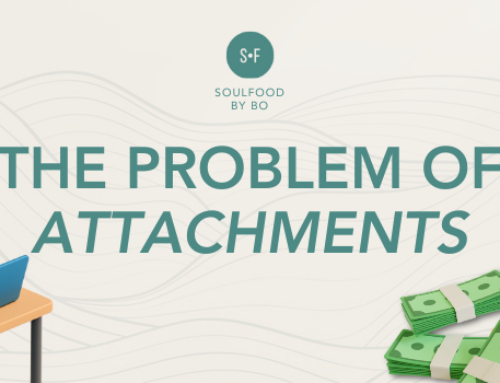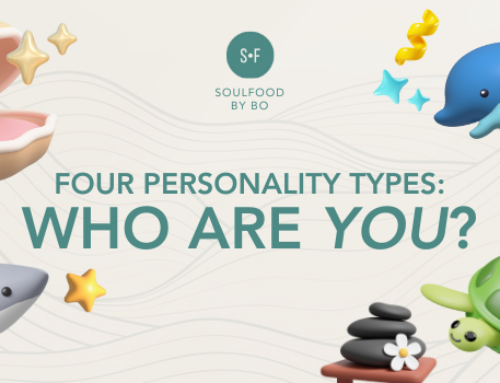
I wonder why Jesus asked him that silly question.
Here’s the story. One day, Jesus saw a paralyzed man lying near the pool of Bethesda. The guy has been paralyzed for 38 years. Jesus asked him, “Would you like to get well?” (Read the full story in John 5:1-9)
I find that…uh, rather strange.
Why ask that question?
The paralyzed man could have answered, “Helloooo… Is the sun hot? Is the Pope Catholic? Is Bo Sanchez handsome? Of course I want to get well. Goodness, are you blind, Jesus? Isn’t it pretty obvious? When you were a kid, I was already lying here. Before you were born, I was already lying here. I’ve been stuck here for 38 years. My gosh, why wouldn’t I want to get well?”
But Jesus asked that question because he knew human nature.
Let me shock you: Suffering people are ambivalent. Torn. Confused. Conflicted. Two-minded.
Many sick people aren’t sure if they want to get well. Many poor people aren’t sure that they want to get rich. Many problematic people aren’t sure that they want all their problems to be solved. Many abused wives aren’t sure if they want to get rid of their abusive husbands.
It’s crazy, but true.
How do you know if someone is ambivalent? If he gives excuses for not doing what he’s supposed to be doing.
That’s what the paralyzed guy did. He said, “I can’t, sir, for I have no one to put me into the pool when the water bubbles up. Someone else always gets there ahead of me.” (The people there believed that the pool was miraculous.)
Believe me, I’ve heard the line, “I can’t…” a million times already. I hear it from suffering people who seemingly want to get out of their suffering–but don’t. After saying “I can’t…” they’ll give their excuses.
Let me give you one example…
“I Can’t Because…”
I’ve talked to a number of jobless people. Here are the actual statements I heard from them…
- “I can’t find a job because there are so many others looking for a job.”
- “I can’t find a job because I don’t know anyone…”
- “I can’t find a job because I don’t know how to make a bio-data.”
- “I can’t find a job because I have no one to accompany me.”
- “I can’t find a job because it’s so hot these days and I’m allergic to the heat.”
- “I can’t find a job because I lost my cellphone.”
- “I can’t find a job because I don’t have anything nice to wear.”
I repeat–Excuses are simply signs that they’re ambivalent. Bottomline, they don’t want a job. At least, they don’t want a job bad enough.
Here’s what I learned in life: If you want something bad enough, nothing much can stop you. Not a million other job applicants. Not the heat. Not the lack of a companion. Not the lack of a cellphone. Not the lack of nice clothes.
Why are people ambivalent?
Two reasons…
Two Reasons For Ambivalence
This seems insane–when a suffering person is not sure if he really wants to get out of his suffering or not.
But there are 2 real reasons for this ambivalence…
1. Suffering Has Become Your Identity
The paralyzed man had been paralyzed for 38 years. That’s a pretty long time. He saw himself as paralyzed. I bet he couldn’t see himself in any other way–until Jesus came along.
For many people, their suffering becomes their Safe Zone. They’ve gotten used to the pain. And what is familiar is safe–no matter how painful that situation is.
Listen to this statement from author Robin Sharma. The most dangerous place is your safe zone. If you want growth in your life, you have to get out of your safe zone. Because your safe zone is the place for dead people.
At the root of all ambivalence is Fear. What kind of fear? The fear of the unknown.
No matter how painful suffering is, at least we’re familiar with it. That suffering has become our identity. And once there’s an opportunity to get out of suffering, fear of the unknown grips our heart. Result? We become ambivalent.
When I converse with the poor in slum areas, I cannot count the number of times I’ll hear these words, “I’m poor”; “We’re poor”; “My family is poor”… It’s a common refrain you’ll hear again and again.
Poverty has become their identity.
Many of them have gotten so used to it, if you give them an opportunity to leave poverty, they’ll not take it. Because they’re afraid at what will happen to them if they lose their identity of poverty.
Here’s my big question to you: What problem has become your identity? The man’s paralysis was his identity. So much so that his mat became his master. His problem ruled his life. His mat controlled him, not the other way around.
What is your Mat?
Jesus said, “Stand up and pick up your mat.” Don’t let that problem control you. Take control of your problem! Take charge of that sickness. Take charge of that debt. Take charge of that situation. Stand up!
Here’s the second reason for ambivalence…
2. Suffering Has Become Your Income
Problems have side benefits. Always.
For the paralyzed man, his paralysis was the reason why he could earn a living as a BEGGAR. For 38 years, his paralysis put food on the table. No wonder Jesus asked him, “Do you want to get well?” In other words, Jesus was asking, “Hey Buddy, if you get well, you’re going to lose your income. You’ll have to change your career. Are you sure you want this?”
This is a fact. We derive all sorts of income from our problems, not necessarily financial.
I met a woman who was sick with hypertension, diabetes, allergies, and heart disease. And every year, she’d have a new sickness. She was going to different doctors almost every week, sometimes two or three times a week, for 12 long years.
After talking to her, I realized she was such a lonely person. She had no real family around her. And here’s my suspicion: She likes getting sick. The only time someone talks to her, or listens to her, or holds her hand, or touches her arm, is when she is sick. Her 6 doctors, all the nurses, and the clinics’ receptionists have become her small community.
Believe me, she’ll never get well. Unless she finds an “income-replacement”. (I invited her to join me at the Feast each week. So she’ll find a new community there!)
Here’s my question to you: What income do you get from your suffering? Identify your income. And identity your “income-replacement”. If you don’t, you’ll always have ambivalence. Fear of the unknown will always hold you back.
Next week, I’ll give you the three steps to get out of your paralysis, three steps to get out of your suffering…
May your dreams come true,

Bo Sanchez




